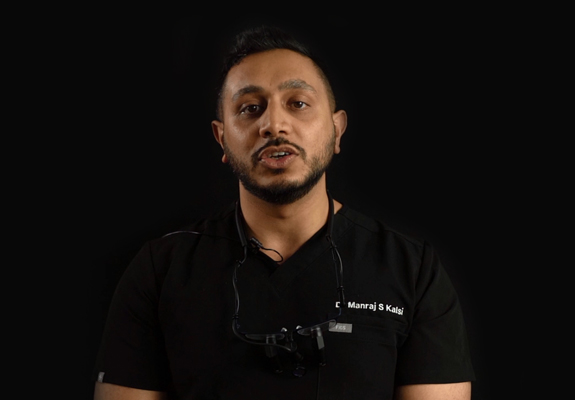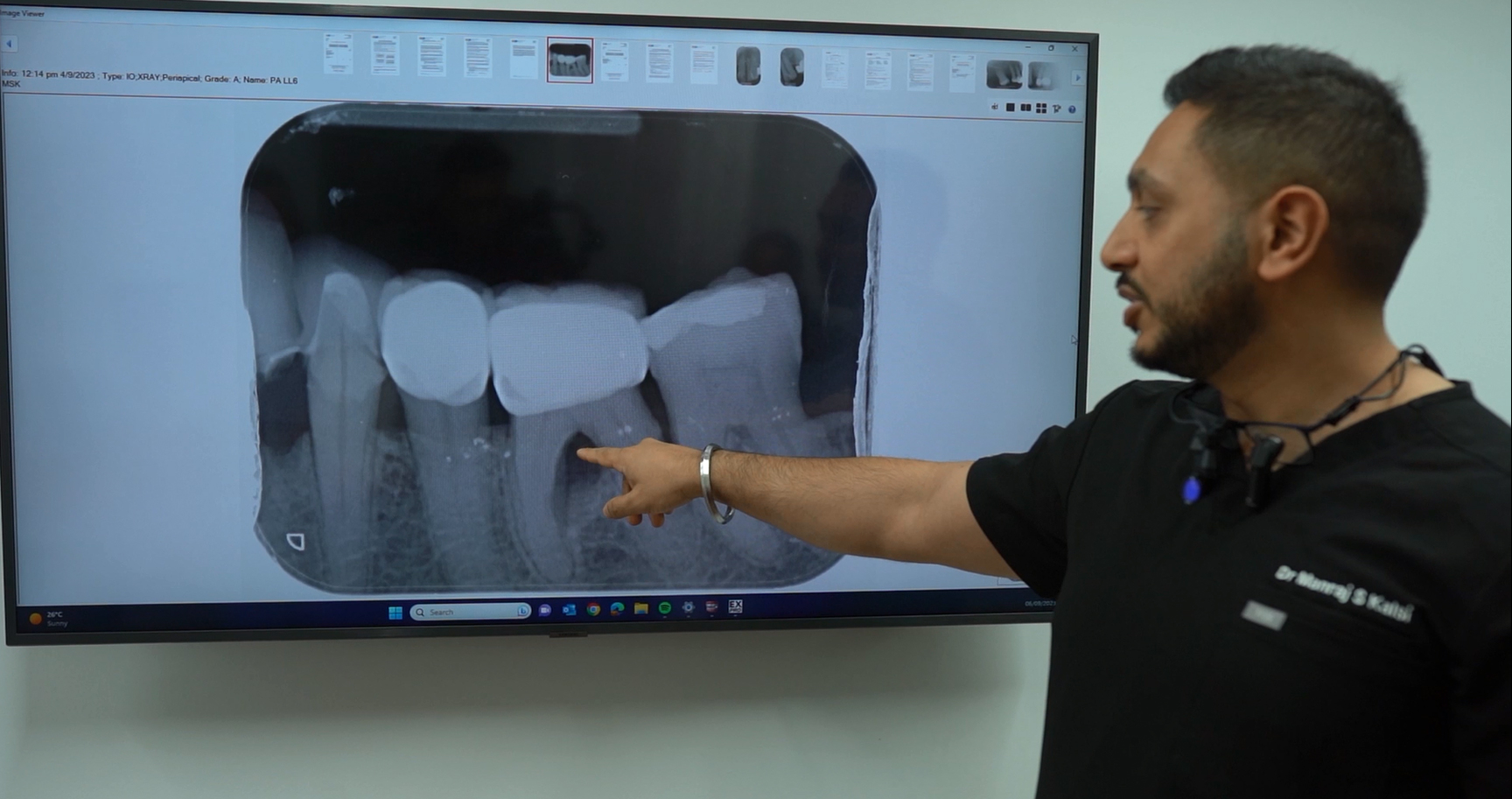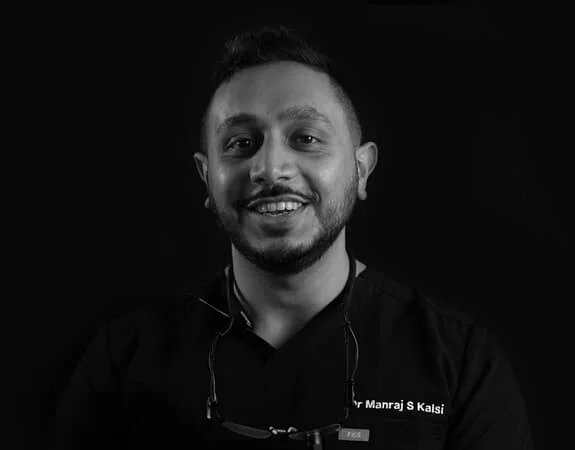















If you have been diagnosed with a form of periodontitis (severe gum disease), initial treatment normally begins with non-surgical periodontal therapy. The aims of this treatment are to reduce inflammation and the depth of pockets around the affected teeth.
As part of this treatment, Dr Kalsi will go through a tailored programme of how to clean your teeth. This is NOT advise but will be a prescriptive programme including use of an electric toothbrush (which you are advised to bring your own for demonstration) and Tepe® interdental brushes. This is the most vital aspect of treatment, such that without effective home oral hygiene, treatment is unlikely to be effective in the short or long-term. We will check that you are comfortable in performing the cleaning yourself and your compliance will be monitored throughout.


The treatment itself entails the removal of plaque bacteria and calculus below the gum line through root surface debridement. We typically carry this out under local anaesthetic to ensure that you are comfortable. If required, Dr Kalsi may prescribe antibiotic tablets to improve treatment outcomes when deemed appropriate.
Treatment is typically carried out over multiple appointments, as we will focus on individual areas during each appointment. Appointment times vary from 60-120 minutes. Normally where full mouth cleaning is required this is completed over 2 sessions; during each session half mouth (e.g. upper and lower right side teeth)root surface debridement is undertaken. Following completion of the prescribed treatment, you will be advised to return for a reassessment visit to assess your response to the treatment.

Refer patients for:
Teddington Dental
Sheen Dental
Sunningdale Dental Practice
@Teddington 020 8977 2911
@Sheen 020 8876 5277
@Sunningdale 01344 620526